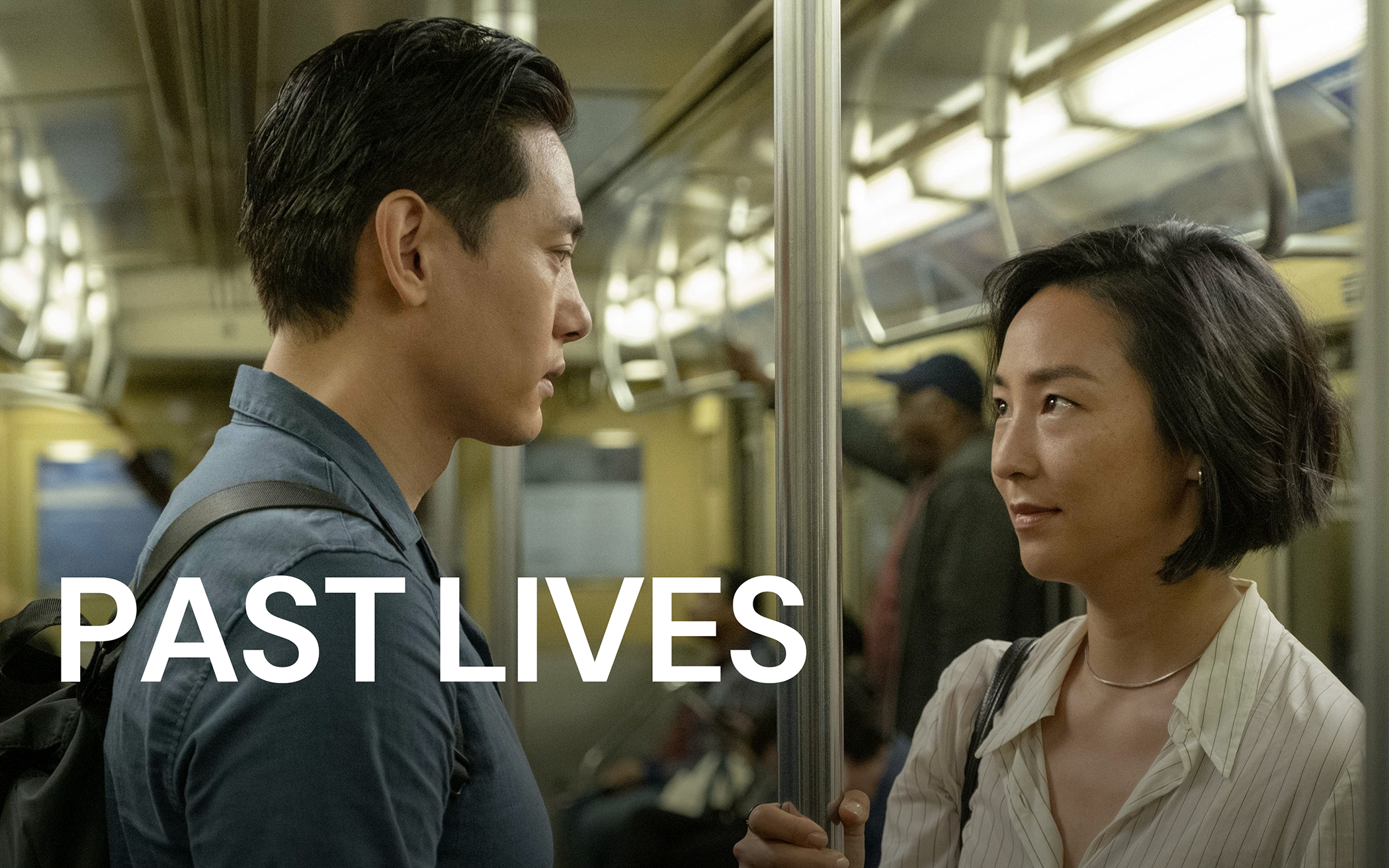Childhood sweethearts Na Young (Greta Lee) and Hae Sung (Teo Yoo) are separated when Na Young’s family moves from South Korea to Canada. They reunite for the first time as adults in New York, where Na Young, now known as Nora, lives with her fellow writer and husband, Arthur (John Magaro). As Nora and Hae Sung’s affections rekindle, Arthur senses a threat to his marriage, and the three must navigate a way forward.
In the hands of another director, Past Lives, produced by A24 (Everything Everywhere All at Once and Netflix’s Beef), could have easily taken a turn for the salacious. But in the hands of director Celine Song, whose personal immigration experience serves as inspiration for the film, Past Lives is an understated and poignant reflection on how the characters — as well as all those watching — can wrestle with living faithfully in the present while still sincerely embracing the past.
One way the film wrestles with what to do with our “past lives” is to both evoke and subtly critique the traditional romance genre, which often overemphasizes desire while underplaying the complexity of our highly connected lives. For example, Nora and Hae Sung’s dialogues are always embedded in broader social networks. Their first date as children plays out in front of their mothers, and their reconnecting as adults happens because of Nora’s parents. As adults, they never let their mutual affections overshadow the reality of their existing commitments, namely Nora’s marriage to Arthur. When they take the ferry to the Statue of Liberty, a classic romantic setting, they warmly converse but keep a careful distance from each other. When Hae Sung goes to Nora’s apartment, it’s to meet Arthur for the first time. And when the two share an intimate dialogue in Korean at the bar, it’s to conclude how much Arthur loves Nora.
The film never veers into lewdness, but it also never comes across as moralistic or preachy. Rather, in artfully walking the thin line between the two, it allows the characters to feel their conflicting emotions and desires in a fuller, more resonant range. Song’s use of shadow and light, intentional framings, and sincere dialogue propels Past Lives to meta-level ruminations on the polarities of connection — past and present, private and public, culture to culture — as well as the liminal spaces between.
Song thinks the reason the film has been “connecting with people universally” is because “we all have an experience connecting with the part of ourselves that’s left behind in a place, in a person, or in a time in your life,” she said while in Australia for the Melbourne International Film Festival. “I think that really is at the heart of what the movie is.”
In a self-aware moment in the film, Arthur, lying in bed beside Nora, says, “I was just thinking what a good story this is. I just can’t compete. Childhood sweethearts who connect 20 years later and are meant for each other.” In this story, he would be the “evil white husband standing in the way of destiny.” How can the story that he and Nora have written for themselves — at times boring and practical — compete with such a deeply rooted romance, carried out in Nora’s heart language, a dialogue he can’t understand? Nora’s reply is touching and genuine: “You’re forgetting the part where I love you.”
In the most moving scene of the film, Nora parts from Hae Sung and returns to the apartment where Arthur is waiting on the steps. She sees him and breaks into tears — her first on-screen cry — as he holds her tightly. In that moment, she feels the tremendous grief of her childhood parting from Korea, from Hae Sung, and from who she might have been. There’s the simple acknowledgement that in her past life, she loved Hae Sung and he loved her. But this acknowledgment comes within Arthur’s embrace, echoing Nora’s earlier words to him: “This is my life, and I’m living it with you.”
In Arthur and Nora’s embrace, Past Lives ultimately reminds us that those who love us in the present choose to love us fully, past lives and all. It’s an embrace that reminds us of Christ. (A24, stream on Amazon Prime, Apple TV+, and other platforms)
About the Author
Sara Kyoungah White is a copy editor for Christianity Today. She lives in Grand Rapids, Michigan.

